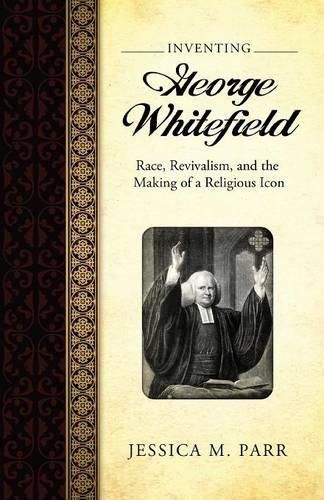Inventing George Whitefield: Race, Revivalism, and the Making of a Religious Icon
Jessica M. Parr

Inventing George Whitefield: Race, Revivalism, and the Making of a Religious Icon
Jessica M. Parr
This title is printed to order. This book may have been self-published. If so, we cannot guarantee the quality of the content. In the main most books will have gone through the editing process however some may not. We therefore suggest that you be aware of this before ordering this book. If in doubt check either the author or publisher’s details as we are unable to accept any returns unless they are faulty. Please contact us if you have any questions.
Evangelicals and scholars of religious history have long recognized George Whitefield (1714-1770) as a founding father of American evangelicalism. But Jessica M. Parr argues he was much more than that. He was an enormously influential figure in Anglo-American religious culture, and his expansive missionary career can be understood in multiple ways. Whitefield began as an Anglican clergyman. Many in the Church of England perceived him as a radical. In the American South, Whitefield struggled to reconcile his disdain for the planter class with his belief that slavery was an economic necessity. Whitefield was drawn to an idealized Puritan past that was all but gone by the time of his first visit to New England in 1740.
Parr draws from Whitefield’s writing and sermons and from newspapers, pamphlets, and other sources to understand Whitefield’s career and times. She offers new insights into revivalism, print culture, transatlantic cultural influences, and the relationship between religious thought and slavery. Whitefield became a religious icon shaped in the complexities of revivalism, the contest over religious toleration, and the conflicting role of Christianity for enslaved people. Proslavery Christians used Christianity as a form of social control for slaves, whereas evangelical Christianity’s emphasis on
freedom in the eyes of God
suggested a path to political freedom. Parr reveals how Whitefield’s death marked the start of a complex legacy that in many ways rendered him more powerful and influential after his death than during his long career.
This item is not currently in-stock. It can be ordered online and is expected to ship in 7-14 days
Our stock data is updated periodically, and availability may change throughout the day for in-demand items. Please call the relevant shop for the most current stock information. Prices are subject to change without notice.
Sign in or become a Readings Member to add this title to a wishlist.


